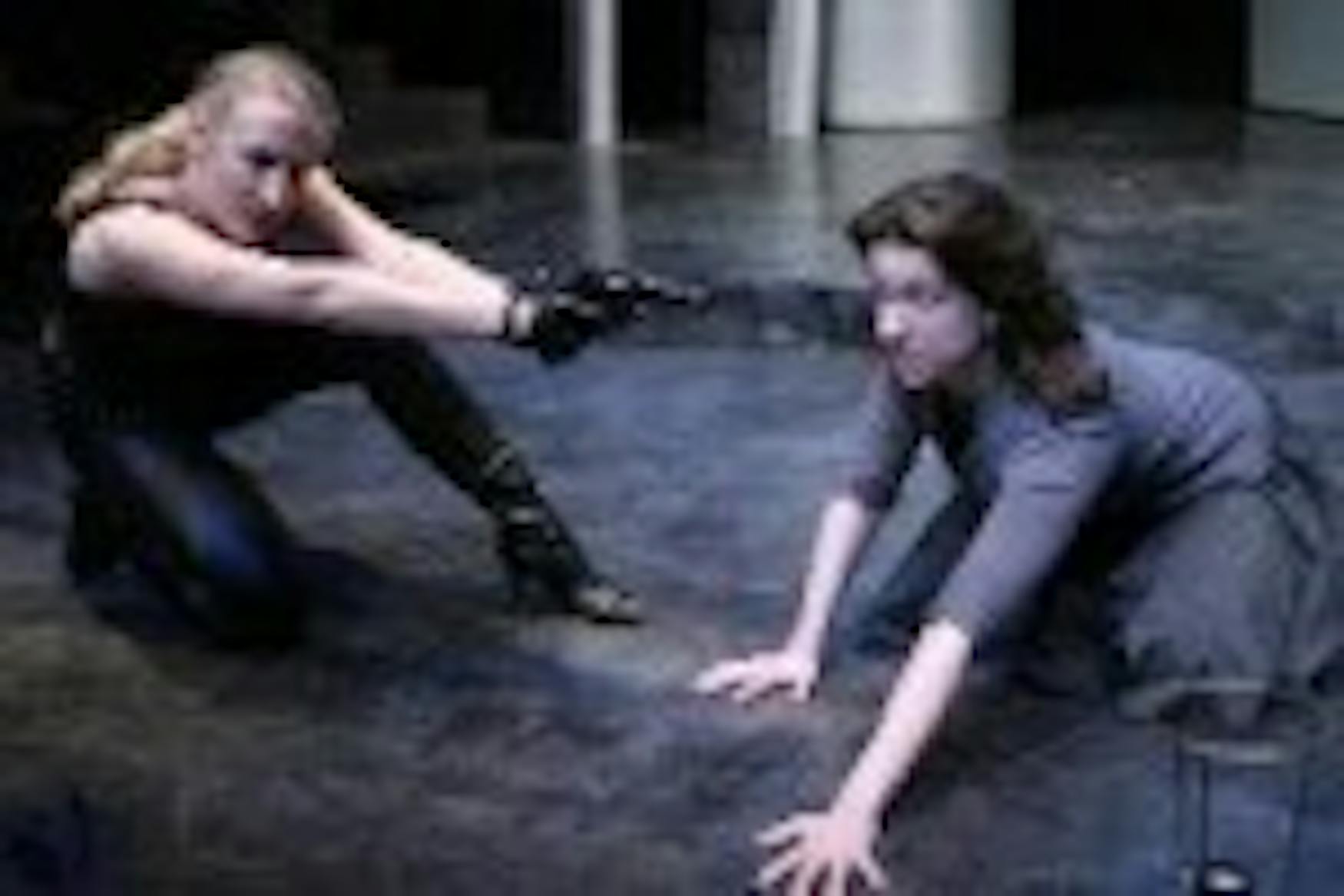Cell Phone' dials up success
Like Murphy's Law, it's inevitable that in any moment of quiet, a cell phone is bound to ring. "There are only one or two sacred places left in the world today. Where there is no ringing. The theater, the church and the toilet. But some people actually answer their phones on the shitter these days," cries Gordon's mother as she eulogizes her son during Sarah Ruhl's play Dead Man's Cell Phone. But the play, now in its premiere Boston run at the Lyric Stage Company of Boston, is not a postmodern rant against technology-not entirely, that is.Jean is finishing her lunch in a café when a cell phone starts ringing and won't stop. Miffed that the man at the next table will not answer his phone, the otherwise quiet and meek Jean takes it upon herself to pick up. As the title promises, the man is dead and Jean suddenly finds herself telling a heap of lies, playing secretary, therapist and confidante to the deceased Gordon's dysfunctional family and unsavory business associates. But Cell Phone is more than just a morbid situation comedy.
To her admirers, Sarah Ruhl is the answer to a recent resurgence of kitchen-sink dramas like Rabbit Hole, The God of Carnage and the wildly popular August: Osage County. Ruhl's plays are filled with outrageous scenarios, fantastical imagery and language that oscillates between the metaphysical and the mundane. Here Ruhl concocts a cell phone ballet, a meeting in the afterlife, international espionage and some oddly placed stationery to create a hilarious and heartbreaking story about chance encounters and the possibility for connection in the digital age.
The heroine Jean could easily be the kind of Brandeis girl you'd want to take home to Mom. Jean works at the Holocaust museum. She's pretty and a bit meek, and she has an unswerving sense of duty to a man she's never even met. It's a tough role for an actress; on any other day Jean would be just another umbrella in the rain. Liz Hayes is up for the challenge, playing the part with subtle grace (occasionally a little too subtle), a lot of charm and nearly perfect timing. A devilishly slippery Neil McGarry plays the dead man, Gordon. Beth Gotha, Jessica D. Turner and Bryn Jameson star as Gordon's mother, mistress and estranged wife, respectively. Jeff Mahoney stands out as Dwight, Gordon's lesser half of a brother. Mahoney delivers a pitch-perfect performance full of nebbishy magnetism. The entire cast is delightful, finding and nailing the wonderful nuances and rhythms of Ruhl's script.
And it's not an easy script to get around. Cristina Tedesco's bleakly modern set neatly transforms itself into a café, an airport and someplace that's not quite heaven and not really hell either (to name just a few). It also magnifies the moments of emptiness and loss that punctuate the play and, as Sarah Ruhl seems to argue, modern life itself. David Raynoso's costumes and John Malinowski's lighting design are equally lovely and play well together. Dewey Dellay's score and sound design are at times clunky, at other moments crisp. All of this is under the confident direction of Carmel O'Reilly. Dead Man's Cell Phone is filled with moments; in this production not all of them are represented as magically as one might like, but no matter. The show is a wonderfully eloquent and entertaining rendition of Sarah Ruhl's script.
In a drunken confession to Jean, Gordon's wife Hermia announces, "You know-people never write into Cosmo about how sexual revulsion can be caused by moral revulsion-they just tell you to change positions." I laughed so hard I cried a little. Sarah Ruhl is asking a "magic if" about those little extremities we call our phones. Do they connect us or disconnect us? She's not the first to ask this question, of course, but nobody has ever tackled the issue with as much wit and depth. So the play's not a typical sitcom, and it's not a bludgeoning condemnation of technology. Her detractors can say that her work is overly symbolic, fantastical or whatever they like, but does it matter what it is if the play is good?
Dead Man's Cell Phone runs through Nov. 14 at the Lyric Stage Company of Boston in the YWCA Building at 140 Clarendon Street. Tickets are available from $25-50. Call 617-585-5678 or visit online at www.lyricstage.com.



Please note All comments are eligible for publication in The Justice.